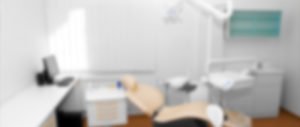 A properly aligned jaw helps you eat, sleep, and live life comfortably. But sometimes, the upper and lower jaws grow in different ways that can cause an underbite, overbite, or an open bite. Even eating a slice of pizza can be impossible, and the pain can be intolerable.
A properly aligned jaw helps you eat, sleep, and live life comfortably. But sometimes, the upper and lower jaws grow in different ways that can cause an underbite, overbite, or an open bite. Even eating a slice of pizza can be impossible, and the pain can be intolerable.
The jaw misalignment might affect facial features, causing a sunken or receding chin. If you suffer from jaw misalignment, don’t give up hope—orthognathic surgery can correct the issue, and it only takes a few weeks to recover.
During a consultation with our board-certified OMS (oral and maxillofacial surgeon), the doctor will ask you about pain, trouble eating and swallowing, sleep difficulties, and related conditions like depression and sleep apnea. If the doctor decides you’re a candidate for the surgery, you will likely begin the pre-surgery process, which requires necessary screening tests (such as X-rays, CT scans, and bite molds), a pre-op consultation and recovery plan.
Orthognathic Surgery
Corrective jaw surgery requires the surgeon to move areas of the jaw and nearby bone structure into a position that creates proper alignment. Since the jaw will be cut, the surgeon will use metal brackets and screws to attach the corrected areas. After your jaw is aligned and secured, the surgeon will stitch up the areas that were incised. Most incisions are inside the mouth, so you shouldn’t have any visible scars. During the surgery, you will be put to sleep with general anesthesia. Depending on your case, you might go home afterward, but it’s possible you’ll need to stay in the hospital or surgical center.
Recovery
Immediately after the surgery, you might have some swelling and bleeding, and you might need to take time off work or school. You’ll want to avoid anything that can irritate the jaw, such as smoking or chewing gum, and follow a liquid diet before trying solid foods. After a few weeks, you’ll be enjoying everything you used to do and more.
If you’re looking for an oral surgeon in the who can assess your case, we can help. As a premier oral surgery provider, we serve clients throughout Fort Worth and the midcities area. Use our contact form, or call (817) 522-1833.
Content found on this blog is intended for educational purposes only and should not be used as a substitute for professional judgment, advice, diagnosis or treatment. Please speak with a professional if you have concerns about your oral health.